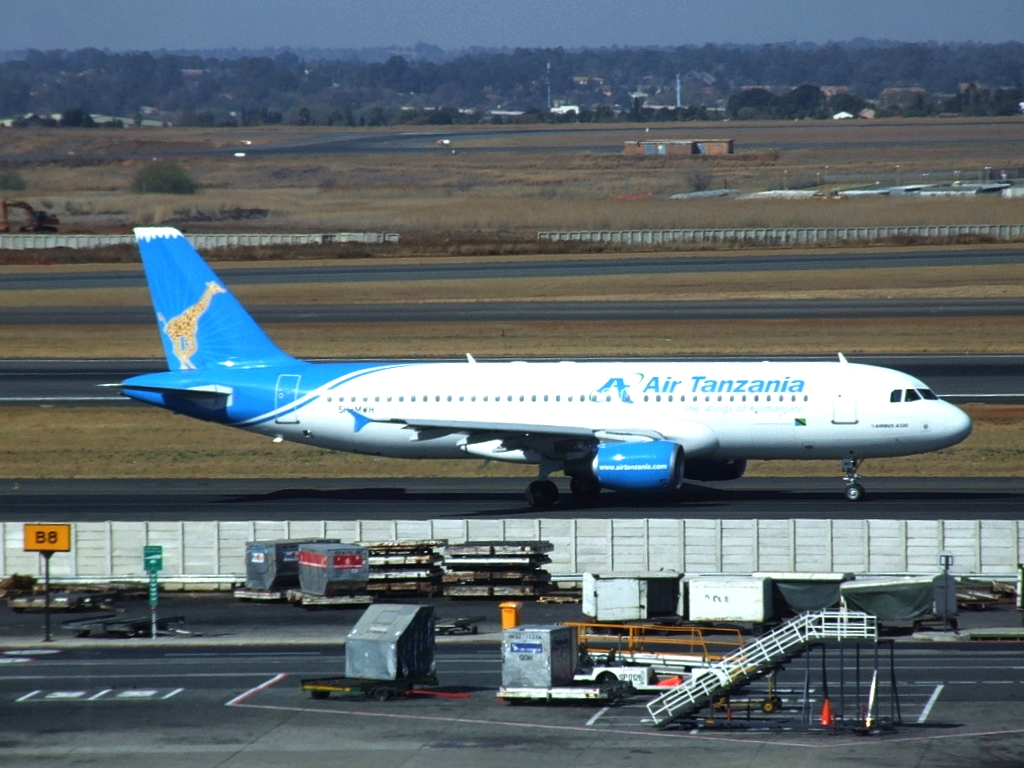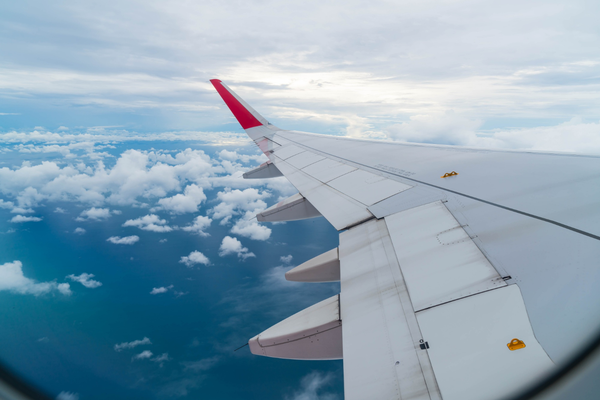Tanzania's state-owned flag carrier, Air Tanzania, received its first Boeing 737 MAX aircraft on October 3. The airline is the first African carrier to receive the 737 MAX amid growing travel demand across West Africa, Southern Africa, and India.

Eng. Ladislaus Matindi, Air Tanzania's CEO and Managing Director said the following about the new aircraft:
“The acquisition of our first Boeing 737-9 marks a significant milestone for Air Tanzania, a momentous occasion that echoes the spirit of the Wings of Kilimanjaro. This advanced airplane is fulfilling our promise to deliver an extraordinary experience to our customer. As we ascend to new heights, Air Tanzania enhances the fleet's capabilities and exemplifies its commitment while extending our appreciation to Boeing as invaluable partners in enabling our vision.”
Air Tanzania offers domestic flights to 13 destinations in Tanzania and international flights to 10 destinations across Asia and Africa. The carrier provides nonstop service to destinations in Burundi, China, Comoros, the Democratic Republic of Congo (DRC), India, Kenya, Uganda, Zambia, and Zimbabwe. The airline's hub is Julius Nyerere International Airport (DAR) in Tanzania's largest city, Dar es Salaam.

Air Tanzania's passenger fleet currently consists of four Airbus A220-300s, one Boeing 737 MAX, two Boeing 787-8s, and five De Havilland Canada Dash 8-400s. The airline also has one Boeing 767-300F aircraft for cargo flights to destinations in the United Arab Emirates, DRC, and India.
Airlines prefer the Boeing 737 MAX family of aircraft since it offers improved efficiency, passenger comfort, and environmental performance. These factors have become important amid the post-pandemic rebound in travel demand and the aviation industry's commitment to reaching net zero emissions by 2050. The 737 MAX reduces fuel usage and carbon dioxide emissions by 20% compared to the aircraft it replaces.

The 737 MAX's benefits are possible partially due to the aircraft's design, which incorporates CFM International LEAP-1B engines and advanced technology winglets. Since innovations such as electric aircraft are still decades away, designing more efficient planes is one of the most feasible ways to decarbonize aviation. Another innovation that has become more popular is replacing traditional petroleum-based jet fuel with sustainable aviation fuel (SAF), developed from organic materials such as used cooking oil.
Anbessie Yitbarek, Boeing's Vice President of Commercial Sales and Marketing for Africa, added the following about the 737 MAX:
"Today marks an important milestone for Air Tanzania with the delivery of its 737 MAX, which is perfectly suited to connect the airline to prominent markets in Africa, providing it with enhanced capability and flexibility across its network. The 737-9, with its versatility and fuel efficiency, will support Air Tanzania's goal of opening new opportunities and expanding its network."

Boeing is focusing more on Africa due to the continent's growing population, especially the middle class, creating stronger travel demand. The company's 2023 Commercial Market Outlook for Africa predicts that the continent will need 1,025 new aircraft over the next two decades. Boeing also forecasts Africa's air traffic levels to grow by 7.4%, above the global average of 6.1% for the same period.
The coming decades should be a strong time for Boeing as airlines worldwide update and expand their fleet through new aircraft orders. The 737 Max is beneficial if Air Tanzania expands its route network across Africa, the Middle East, and Asia. The aircraft can operate flights for up to eight hours in length.
Comments (0)
Add Your Comment
SHARE
TAGS
NEWS Tanzania Air Tanzania Africa Boeing 737 MAX New Aircraft 737 MAX East AfricaRECENTLY PUBLISHED
 The Future Of Aerospace: Integrating Satellite Analytics With Aviation Systems
The aerospace sector is undergoing significant change as space technologies blend with aviation. Having the most up-to-date satellite images now means progress in air traffic control and weather forecasting.
INFORMATIONAL
READ MORE »
The Future Of Aerospace: Integrating Satellite Analytics With Aviation Systems
The aerospace sector is undergoing significant change as space technologies blend with aviation. Having the most up-to-date satellite images now means progress in air traffic control and weather forecasting.
INFORMATIONAL
READ MORE »
 The Swiss Standard of Comfort Transfers: Clean, Timely, Elegant
For luxury travellers and business clients, the Swiss standard of transport is not merely about getting from one point to another - it is about arriving in comfort, style, and absolute professionalism.
INFORMATIONAL
READ MORE »
The Swiss Standard of Comfort Transfers: Clean, Timely, Elegant
For luxury travellers and business clients, the Swiss standard of transport is not merely about getting from one point to another - it is about arriving in comfort, style, and absolute professionalism.
INFORMATIONAL
READ MORE »
 Mount Everest Summit: Cheaper by Helicopter, But is it Worth it?
Climbing Mount Everest is neither an easy nor a cheap feat. At a height of just over 29,000 feet (~8,849 meters), reaching the summit of the world’s tallest mountain nearly puts climbers at the height at which aircraft cruise. Today, we will examine and compare the costs of the two primary methods used to experience Mount Everest: by actually climbing the mountain or by taking a helicopter tour.
STORIES
READ MORE »
Mount Everest Summit: Cheaper by Helicopter, But is it Worth it?
Climbing Mount Everest is neither an easy nor a cheap feat. At a height of just over 29,000 feet (~8,849 meters), reaching the summit of the world’s tallest mountain nearly puts climbers at the height at which aircraft cruise. Today, we will examine and compare the costs of the two primary methods used to experience Mount Everest: by actually climbing the mountain or by taking a helicopter tour.
STORIES
READ MORE »



